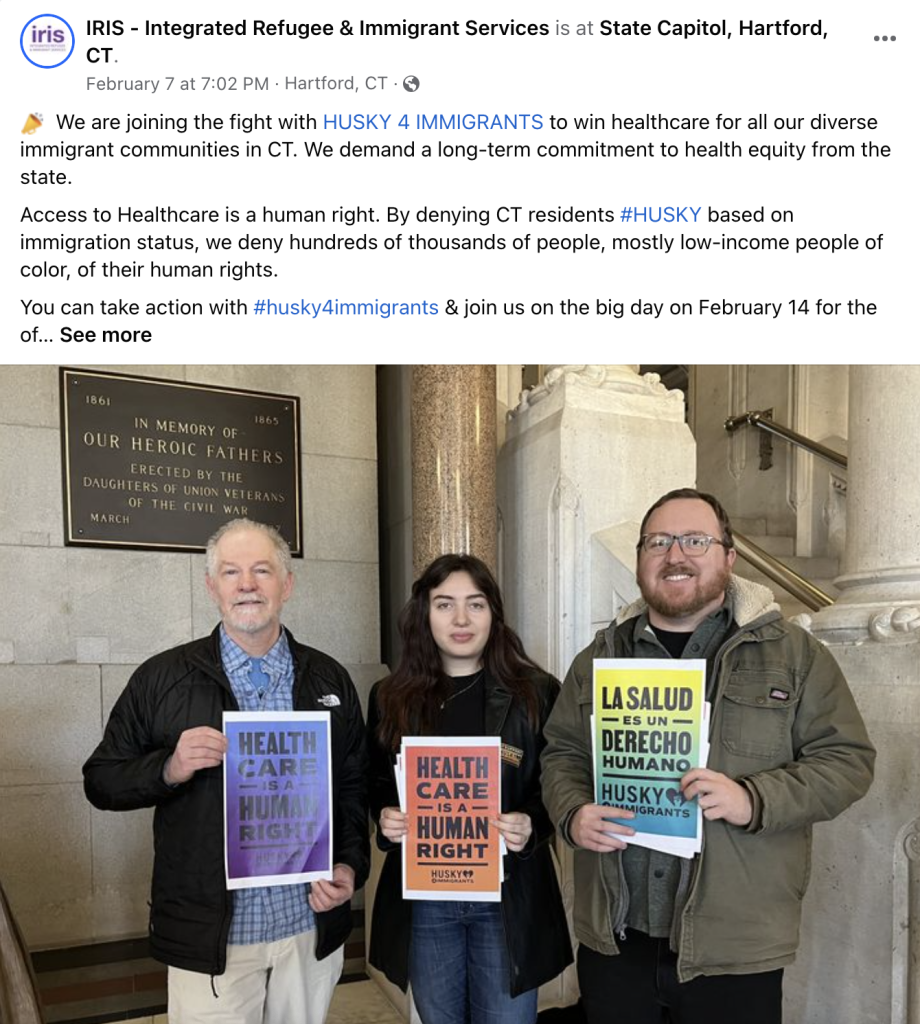
Please Follow us on Gab, Minds, Telegram, Rumble, Gettr, Truth Social, Twitter
Ann O’Brien, Director of Sponsorship for Integrated Refugee & Immigrant Services (IRIS), delivered testimony during this week's Planning and Development Committee Hearing that raised eyebrows, especially in light of the growing illegal immigrant crisis in this country.
"Immigration is foundational to the success of our state," said O'Brien. "Immigrants also act as an engine for our state's economy, contributing over $2 billion per year in state and local tax revenue and in increasing money circulation by nearly $18 billion. Without the housing to meet the needs of our immigrant families, we risk losing that which makes Connecticut great, diverse and inclusive communities and reliable good-paying jobs."
She's arguing for a significant amount of new housing, in particular increasing housing around transit stations in support of House Bill 5390: An Act Concerning Transit Oriented Communities, also known as "Work, Live, Ride." The bill seeks to encourage more construction of apartment complexes near public transit by holding back various state funding sources from municipalities that don't move quickly enough to build.
State Senator Ryan Fazio said, "So your clients, I assume they don't only include refugees who went through the refugee immigration system, I assume it includes other types of immigrants as well, right?"
O'Brien responded, "Oh yes, we work with the broadest range of displaced people." She then explained some refugees, like those from Ukraine, had a special status called "humanitarian parole" and those from Afghanistan who were evacuated and worked for the US military.
Then Senator Fazio asked for clarification. "I assume when you say 'broadest range possible' of clientele that includes immigrants regardless of legal status and documentation?"
O'Brien responded, "yes".
She added that the "vast majority" of people served by IRIS come through the federal resettlement program and those on different types of humanitarian parole.
Senator Fazio was surprised by O'Brien's testimony and had not anticipated that particular point of view on the work-live-ride bill. He wanted to ensure that the interests, well-being and safety of legal residents of the State of Connecticut were being protected, especially in light of the problems we are seeing at the Southern Border.
IRIS is a non-profit agency whose mission is to help refugees and other displaced people establish new lives by forming an "equitable community" in partnership with the federal government. The organization says it "empowers refugees and immigrants to become self-sufficient and integrated into their new communities" in Connecticut. It maintains offices in New Haven and Hartford, and partners with over 50 community groups in the state.
IRIS provides six key services for refugees and immigrants, including illegal immigrants, who are settling in Connecticut:
Illegal immigrants are assisted through IRIS's SUN (Services for Undocumented Neighbors) Program.
The SUN program aims to help illegal immigrants "become strong self-advocates with an awareness of how to access what they need."
“Our mission for this program is to connect clients to the resources they need to meet their basic needs and thrive in their communities. We aim for our clients to be able to advocate for themselves and their families. Our services are universal and focus on undocumented low-income people of color,” the IRIS website states.
The SUN program is available to illegal immigrants who live in the city of New Haven or surrounding towns – including West Haven, East Haven, Hamden, and North Haven.
The only difference between legal and illegal immigrants, says IRIS, is that illegal immigrants "enter the United States without official authorization to live and work here" for a "variety of reasons, including fear of persecution, economic necessity, or to be close to family members."
IRIS’s budget grew from approximately $4M in 2021 to approximately $8M in 2022 and was approximately $12M in 2023.
Direct client aid represents over $1.5M of the IRIS budget, while personnel expenses total $9.7M.
In February, IRIS advocated in Hartford for extending the state's HUSKY insurance program to cover all immigrants, including illegal immigrants.
"We are gearing up to welcome more refugees than ever before all while ensuring that migrants in the state of Connecticut have access to high-quality care," boasts IRIS on the website.
But a growing number of legal Connecticut residents are wondering how many is "more than ever before" and how many will be illegal?



